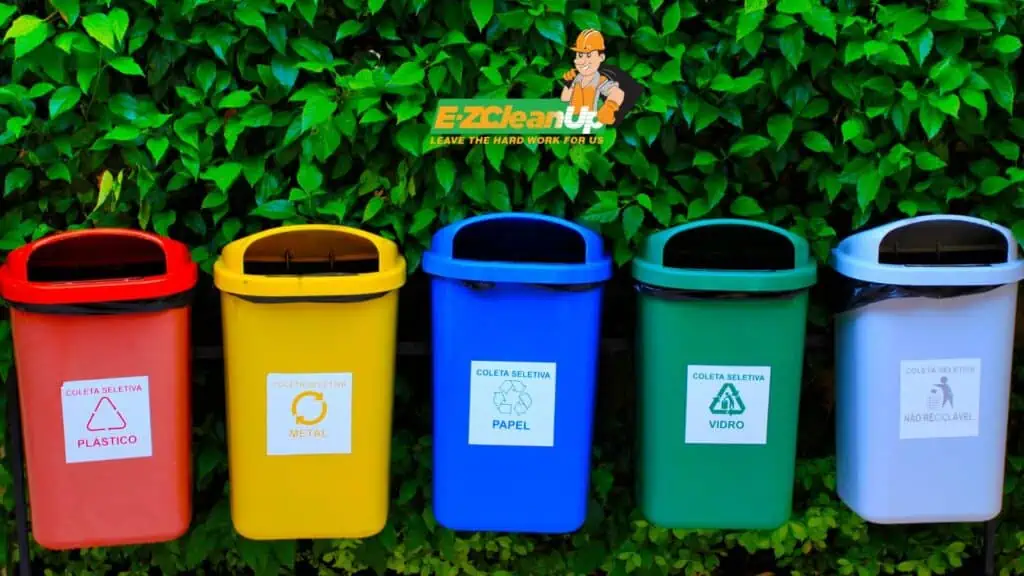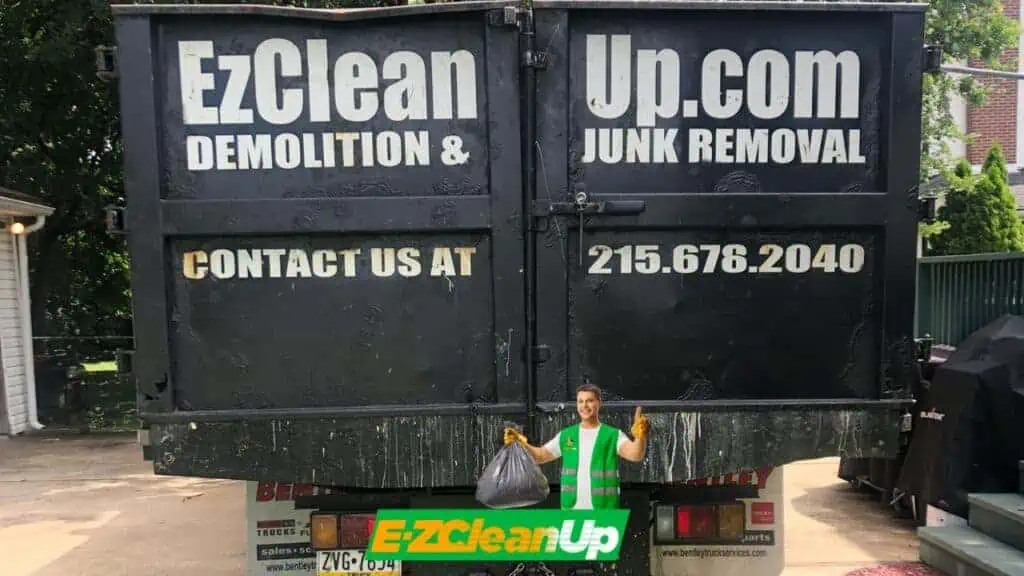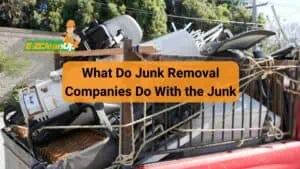It’s important to adopt practices like buying products with minimal packaging, composting organic waste, using reusable containers, and recycling correctly if you want to do your part in keeping the earth clean. These actions reduce waste, conserve resources, and lessen environmental impact.
Discover more practical tips on how to keep the earth clean in our guide below.
Individual Responsibilities in Earth Conservation
Reducing personal waste starts with simple, everyday actions:
- Consider purchasing products with less packaging or recyclable packaging.
- Composting organic waste, such as fruit and vegetable scraps, can draw away a significant amount from the waste stream.
- Using reusable containers and utensils instead of single-use items can substantially reduce waste.
- Buying secondhand items and donating used goods extend the life cycle of products.
- Shopping at local farmers’ markets and buying in bulk can significantly reduce packaging waste.
- Minimizing paper usage by using digital bills, receipts, and subscriptions helps reduce waste.

Importance of Proper Waste Segregation
Proper waste segregation is crucial for efficient recycling and waste management. Different materials require different disposal methods. For instance, not all plastics are recyclable. You must know which plastics your local recycling program accepts.
Additionally, segregating organic waste for composting not only reduces landfill waste but also provides nutrient-rich soil for gardens. Proper segregation ensures that recyclable materials are effectively processed and reduces the contamination of recyclable materials.
Adopting Eco-friendly Lifestyle Choices
This strategy means making conscious choices to minimize environmental impact. This includes using bar shampoos and soaps, taking shorter showers, using reusable menstrual products, and opting for natural cleaning products.
In the kitchen, using beeswax wraps instead of cling film, buying organic and seasonal produce, and making your own bread and sauces can reduce waste. Reducing reliance on vehicles, embracing a minimalist wardrobe, and choosing sustainable and ethical clothing brands are also key elements.
These practices not only reduce waste but also promote a more sustainable and environmentally friendly way of living.
Role of Local Communities in Environmental Clean-up
Local communities play an important role in environmental conservation and clean-up efforts. Research has shown that communities, especially indigenous ones with legal rights over their ancestral lands, are often more effective in conserving forests than governments. This community-led conservation has proven beneficial in reducing deforestation and preserving biodiversity.
The involvement of local communities in managing natural resources has been shown to prevent the ‘tragedy of the commons’ as communities develop practical rules for sharing and managing their resources.
This approach has been successful in places like the Brazilian Amazon and Guatemala’s Peten region, where community-managed forests have seen significantly lower rates of deforestation compared to government-protected areas.

Effective Community Recycling Programs
Community recycling programs are essential for sustainable waste management. These programs often involve collaboration between local authorities and community members.
They focus on educating residents about recycling practices, providing accessible recycling facilities, and encouraging participation through incentives and community events. The success of these programs depends on the active involvement and commitment of community members, as well as support and resources from local governments.
Organizing and Participating in Clean-up Drives
Community clean-up drives can range from public space cleanups, often initiated or supported by local municipalities, to neighborhood-led efforts. These drives involve tasks like collecting and separating trash, cleaning public spaces, and beautifying neighborhoods.
These community initiatives contribute to a cleaner and healthier environment and strengthen the bond between community members and their connection to the environment. They are a testament to the power of collective action to make a solid difference in conserving and protecting our planet.
Corporate Practices for Waste Management
Businesses adopt strategies like waste prevention, reduction, recycling, upcycling, and reuse to effectively manage waste. Waste prevention involves using environmentally friendly manufacturing techniques and going paperless.
Waste reduction can be achieved by using less hazardous materials, reusing substances, or redesigning products to minimize waste. Recycling and reusing materials help conserve natural resources and reduce the demand for new products.
Additionally, some businesses use incineration to reduce waste volume, although it can have environmental concerns. While still widely used, landfills are becoming less popular due to their environmental impacts. Composting and anaerobic waste digestion are also gaining traction as methods to manage organic waste.
Innovations in Eco-friendly Business Operations
Innovations in eco-friendly business operations include focusing on sustainable materials management, which involves assessing materials that can be bought, reused, recycled, or sold. Companies are also exploring new technologies for waste management and recycling, such as using plastic-eating enzymes for PET recycling.
Global initiatives and policies are encouraging businesses to adopt more sustainable practices. For example, Mexico has achieved significant recycling rates for PET plastic, France has implemented laws to prevent food waste, and Sweden uses waste incineration for heating homes. Businesses are also influenced by environmental policies and regulations, which play a critical role in ensuring proper waste management and minimizing environmental risks.

Understanding the Importance of a Clean Earth
The sheer volume of human-generated waste is alarming, with the United States alone producing approximately 267.8 million tons of solid waste in 2017. This waste contributes significantly to the climate crisis, with landfills being a major source of human-generated methane, a greenhouse gas 28 times more potent than carbon dioxide.
This gas makes climate change worse, which affects ecosystems worldwide. Additionally, the majority of the plastic waste produced is not recycled, which leads to extensive ocean and landfill pollution that negatively impacts marine life and human health.
Consequences of Neglecting Earth’s Cleanliness
Neglecting the cleanliness of our planet has negative consequences. Marine life, for instance, is severely affected by waste, with a significant number of marine species ingesting plastic and solid waste, often leading to fatal outcomes. This pollution also adversely affects at least 267 species globally, including sea turtles, seabirds, and marine mammals.
On land, improper waste management can lead to hazardous chemicals leaching into the soil, contaminating water sources, and contributing to air pollution. This impacts ecosystems and human health, as pollutants like black carbon and sulfuric acid from waste contribute to diseases and respiratory infections.
Benefits of a Clean and Healthy Environment
A cleaner environment means healthier ecosystems. For humans, a clean environment reduces the risk of health issues caused by pollution and improves the overall quality of life.
Efforts to reduce waste and pollution can also foster innovation in sustainable practices and technologies. As a result, it will create economic opportunities and promote a healthier planet for future generations.
Government Policies and Environmental Protection
The United States has several key federal environmental laws, which include the following:
- Clean Air Act: It regulates air pollution and applies to various sources, including small businesses.
- Clean Water Act: It focuses on protecting water resources that require compliance with specific regulations and permits.
- Safe Drinking Water Act: It sets standards for water quality and safety.
- Comprehensive Environmental Response, Compensation, and Liability Act (CERCLA): Also known as the Superfund law, it addresses hazardous waste cleanup and liability.
- Emergency Planning & Community Right-To-Know Act: It enhances community safety regarding hazardous substances.
International Agreements and Earth Conservation
One of the recent significant achievements in this area is the Kunming-Montreal Global Biodiversity Framework (GBF), which was established at the United Nations Biodiversity Conference (COP15). This agreement, finalized in Montreal, Canada, in December 2022, sets out concrete measures to halt and reverse nature loss by 2030.
Key goals of the GBF include putting 30% of the planet under protection, restoring 30% of degraded ecosystems, and increasing financial support for biodiversity, particularly in developing countries. The agreement reflects a global recognition of the urgent need to address the alarming decline in biodiversity due to human activities.
Successful Global Environmental Programs
Several successful global environmental programs demonstrate the effectiveness of collaborative efforts. One such initiative is the Race to Zero campaign, which aims to reach net zero greenhouse gas emissions by 2050.
This campaign has seen pledges from various retail and business associations. It highlights the crucial role of the private sector in tackling climate change. These initiatives are vital in supporting the broader goals of international agreements like the GBF and the Paris Agreement on climate action.
Future Trends and Innovations in Environmental Care
The waste management industry is rapidly embracing new technologies to enhance efficiency and sustainability. Key emerging technologies include the following:
- Smart waste management systems leverage the Internet of Things (IoT) to streamline waste collection and improve recycling rates.
- Technologies like smart waste bins equipped with sensors provide real-time data on waste levels. These optimize collection schedules and reduce greenhouse gas emissions.
- Advancements in AI and robotics are revolutionizing waste sorting in recycling centers, which increases the accuracy and efficiency of separating recyclable materials from waste.
- Pneumatic waste pipes in urban areas, solar-powered trash compactors, and e-waste recycling kiosks are other innovative solutions that contribute to smarter and more sustainable waste management.
The Future of Sustainable Living Practices
The circular economy model, which focuses on minimizing waste and maximizing resource utilization, is gaining momentum. This model encourages the design of products and services for longevity, reparability, and recyclability. It aims to keep resources in use for as long as possible.
This shift towards a circular economy is accompanied by an increased focus on sustainable materials and closed-loop supply chains, where waste is seen as a resource rather than a disposal. In the future, sustainable living practices are likely to become more mainstream, driven by consumer demand for environmentally responsible products and services.

EZ CleanUp: Your Partner in Preserving the Environment
The role of responsible junk removal services cannot be overstated in the goal of maintaining a clean Earth. This is where you can trust EZ CleanUp to step up. We are not just another junk removal service; we are committed to eco-friendly practices and community well-being.
Our services are tailored to be budget-friendly, but we ensure that quality isn’t sacrificed for affordability. Our team goes beyond merely clearing out your space; we ensure that your junk is disposed of in the most environmentally responsible way.
EZ CleanUp is more than just a service provider; we are your partner in making sustainable choices that contribute to a cleaner, healthier planet. Contact us today for a free on-site estimate and take the first step towards a clutter-free, eco-friendly space.













